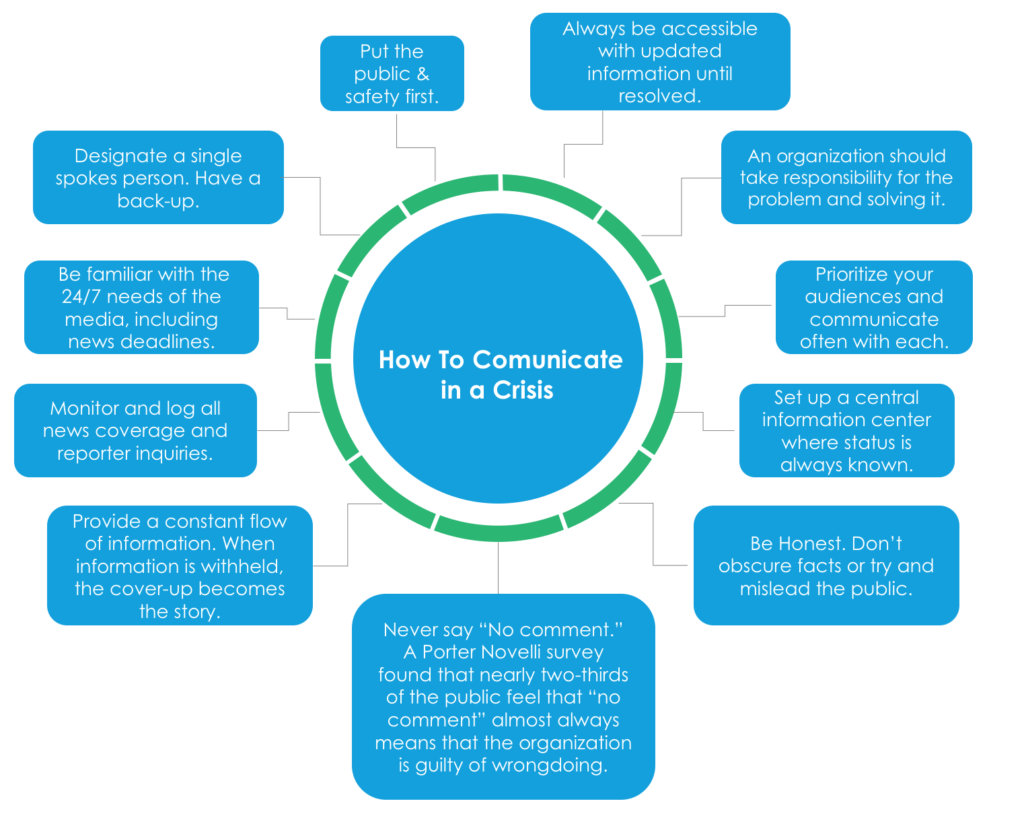How do smart businesses define and manage issues that arise whether internal or external? Concerns about an organization’s decisions could affect its mission, reputation and economic performance.
Issues have an impact on all stakeholders: employees, recruits, customers, partners, investors, politicians, activists and the general public.
How does an organization build and maintain a great track record in the public’s mind? We believe this responsibility is based on three foundations for reputation management that include economic performance, social responsiveness, and the ability to deliver valuable outcomes to stakeholders. Issues often require a swift and decisive action to maintain reputation. An issue can turn into a risk, which can lead to a crisis. This cycle progressively gets more complicated if potential issues are not managed well and thought about proactively.
Frequently, we hear about a company with threatened public perception, reputation, and stock market value. We are not talking about those companies mentioned in Donald Trump’s tweets, which are not news, but have significantly moved share prices. Although much importance is stressed on relaying accurate information to the public, PRWeek discusses what businesses can expect from crisis communications. Smart advice is to share information as quickly as possible. When in a crisis, “accept responsibility, accurately assess the size of the issue, and state what steps are being taken to deal with it.” People want to know you are on it.
Building a reputation plan – before you need it – helps professionals apply the “big picture” for managing conflict before it careens out of control. The Ballast Group highlights the importance of four phases: proactive, strategic, reactive and recovery (below).

Image courtesy of The Ballast Group.
In September, Samsung had a global recall of its Galaxy Note 7 smartphone after reports of faulty lithium batteries that, in some cases, caused fires. The Ballast Group’s founder traveled to Thailand and took five flights in 14 days during November. At every check-in point, signs and agents warned that this phone was not allowed in flight. What would you do without your cell phone for an hour, let alone longer, especially when you are traveling?
The biggest victim of the Samsung Galaxy Note 7 catastrophe has not just been its customers, but its reputation according to South China’s Morning Post which states that the “mishandling of the crisis has battered the tech giant’s reputation, wiping billions of dollars off its share price and brand value.” This article offer seven lessons from its mistakes:
- Beware of over-ambition
- Speed comes at a price
- Listen to the silent voices
- Brand reputation is hard won but easily lost
- Make sure to fix it right the first time
- Strike the right note with the customers and stakeholders
- Culture must adapt to complexity
During any crisis, we focus on 12 important elements to include when managing a crisis:

Image courtesy of Cameron & Wilcox, Public Relations Strategies & Tactics Tenth Edition, 2012
How has your organization handled a recent issue? What does your reputation plan consist of? Share your thoughts in the comments!



